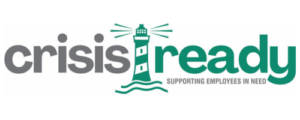Workplace mental health has become a crucial focus for organizations aiming to effectively support employees. Manulife’s Wellness Report indicates that nearly half (46%) of employees report at least one work-related mental health risk factor. While these issues don’t always escalate to a full-blown crisis or mental illness, they can cause emotional distress, affecting workplace functionality and employee well-being.
A mental health crisis is distinct from mental illness. It represents a temporary, overwhelming state where an individual feels unable to manage a situation effectively. Stressors such as interpersonal conflicts, high-pressure events, or escalating risky behaviors like excessive gambling can contribute to such crises. Employers must distinguish between crises and chronic mental conditions to effectively tailor supportive interventions.
Anticipating mental health crises requires organizations to recognize their inevitability and remain proactive. The goal is to develop strategies that both mitigate risks and ensure prompt, supportive responses when crises arise.
Key Insights and Strategic Actions for Equipping Workplaces
Understanding Mental Health Crises
- Employee crises are inevitable: It’s not a question of if but when an employee will face a mental health crisis. Organizations must prepare for these realities, considering timing and severity.
- Prevention and support are essential: Access to preventive resources and support systems can significantly reduce the risk of crises escalating into mental health disorders.
- Mental illness may still develop: Despite preventive efforts, some employees may require treatment or even disability leave for mental health conditions.
- Higher risk among those with past mental health issues: Employees with a history of mental health challenges are more predisposed to a crisis.
- Stigma as a barrier: Stigma around mental health often deters employees from seeking help, leading to missed opportunities for early intervention. Cultivating an environment that promotes open conversations is essential.
- Open discussions encourage help-seeking: Contrary to some beliefs, discussing mental health openly promotes seeking out resources and support.

Empowering Individuals to Prevent Crises and Support Employees in Need
Join HR News Canada, HR Law Canada and Howatt HR for this ground-breaking program designed to transform your approach to workplace crisis management. Led by Dr. Bill Howatt, an internationally known expert in psychological safety, this four-part series will equip leaders with the key skills and strategies to enhance your professional capabilities and bring about meaningful impacts in your work environment. Registration is now open!
For more information, visit www.CrisisReady.ca.
Coaching Tips to Prepare for Mental Health Challenges
To foster mental health support and promote help-seeking behaviors, consider the following actions:
- Develop a comprehensive mental health support program: The foundation of readiness is a structured prevention and support program, leveraging a Plan-Do-Check-Act approach. Integrate diverse resources such as employee assistance programs, psychological service benefits, and community resources. Communicate available support effectively, collect employee feedback, and use technology to streamline access to resources. Offering resilience training can help employees manage stress, engage in mental fitness, and maintain well-being.
- Enhance mental health literacy through ongoing training: Educating employees on mental health, crisis versus illness, and reducing stigma through regular training normalizes the use of mental health services. This training should be continual, similar to CPR refreshers, reinforcing knowledge and encouraging positive behavior.
- Train leaders and HR in the Duty to Inquire: Canadian employers are held to a “Reasonably ought to know” standard for recognizing and addressing mental health crises. Training leaders to identify signs like altered behavior or reduced performance ensures they respond appropriately. They aren’t expected to diagnose, but to initiate supportive interactions when needed. Programs like Crisis Ready offer robust training modules to equip professionals to meet these responsibilities ethically.
Building a Mental Health-Conscious Workplace Culture
Fostering a culture where mental health conversations are encouraged requires a multi-faceted approach. Through policies, education, and resources that promote well-being, organizations can place mental health on par with physical health. By implementing support programs, providing continuous mental health education, and training leaders, workplaces can create environments where employees feel empowered and supported to manage their mental health.
These proactive steps not only fulfill legal and ethical obligations but also cultivate a healthier, more engaged workforce. Taking a proactive stance on mental health fosters employee satisfaction and productivity, reinforcing a resilient organizational culture prepared to tackle mental health challenges.





